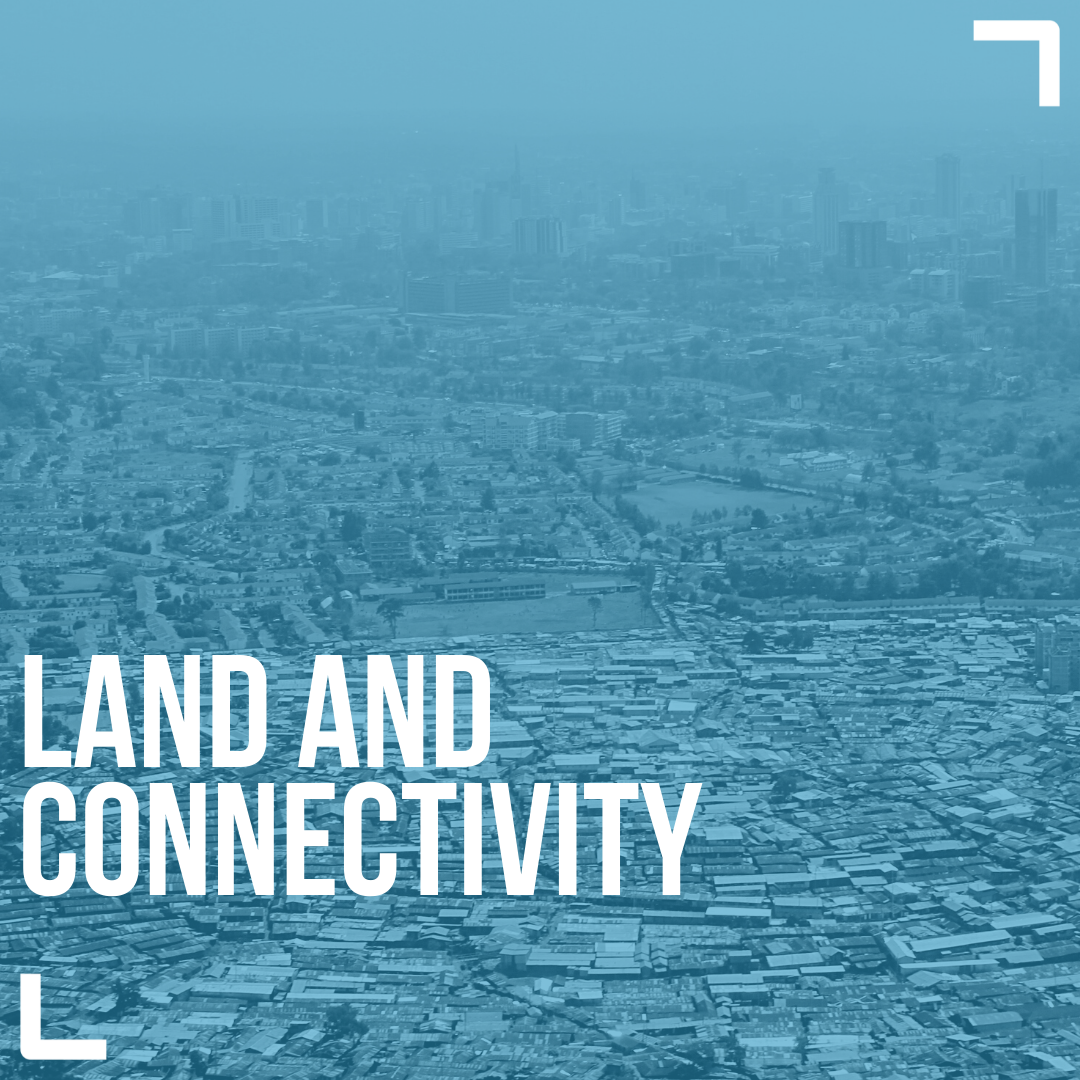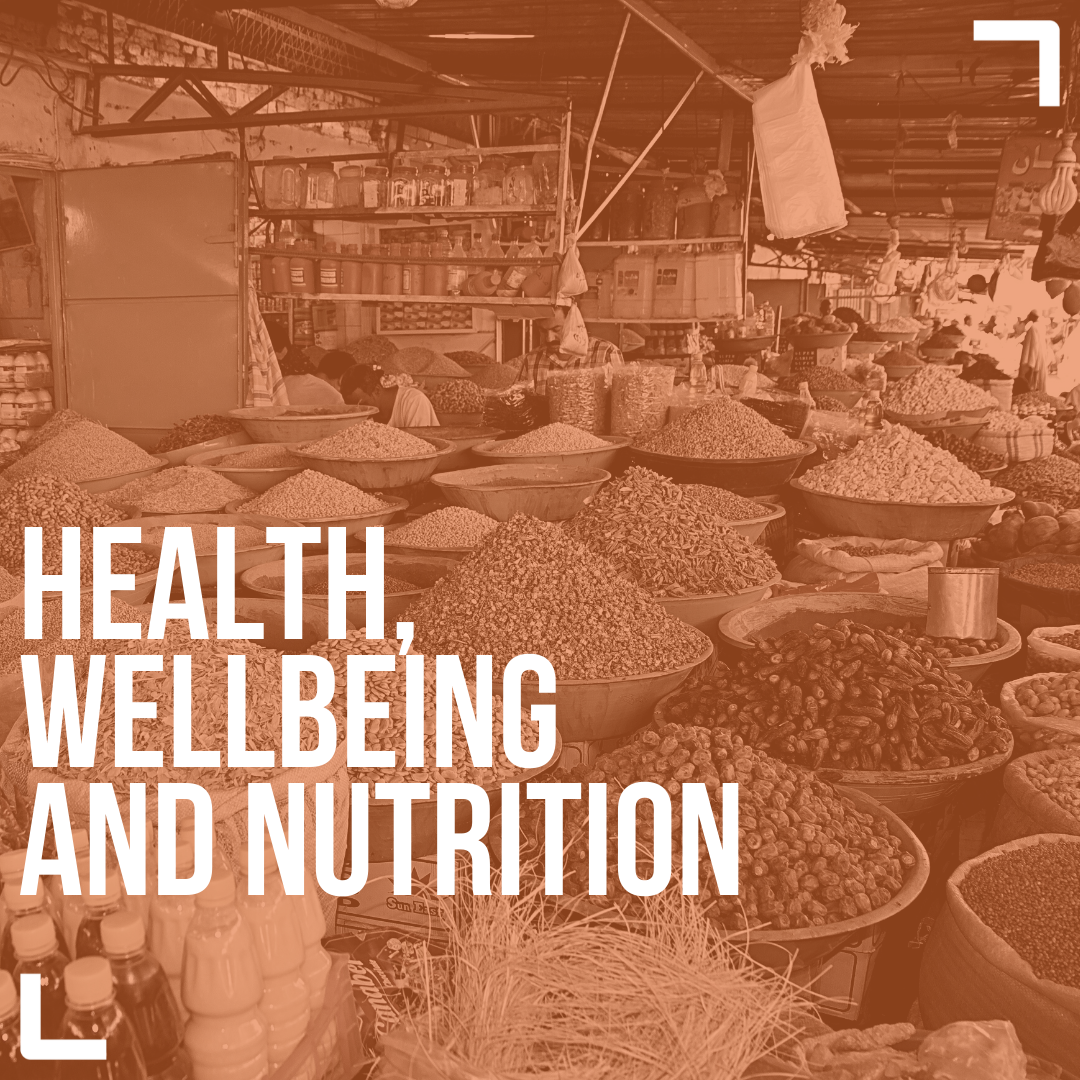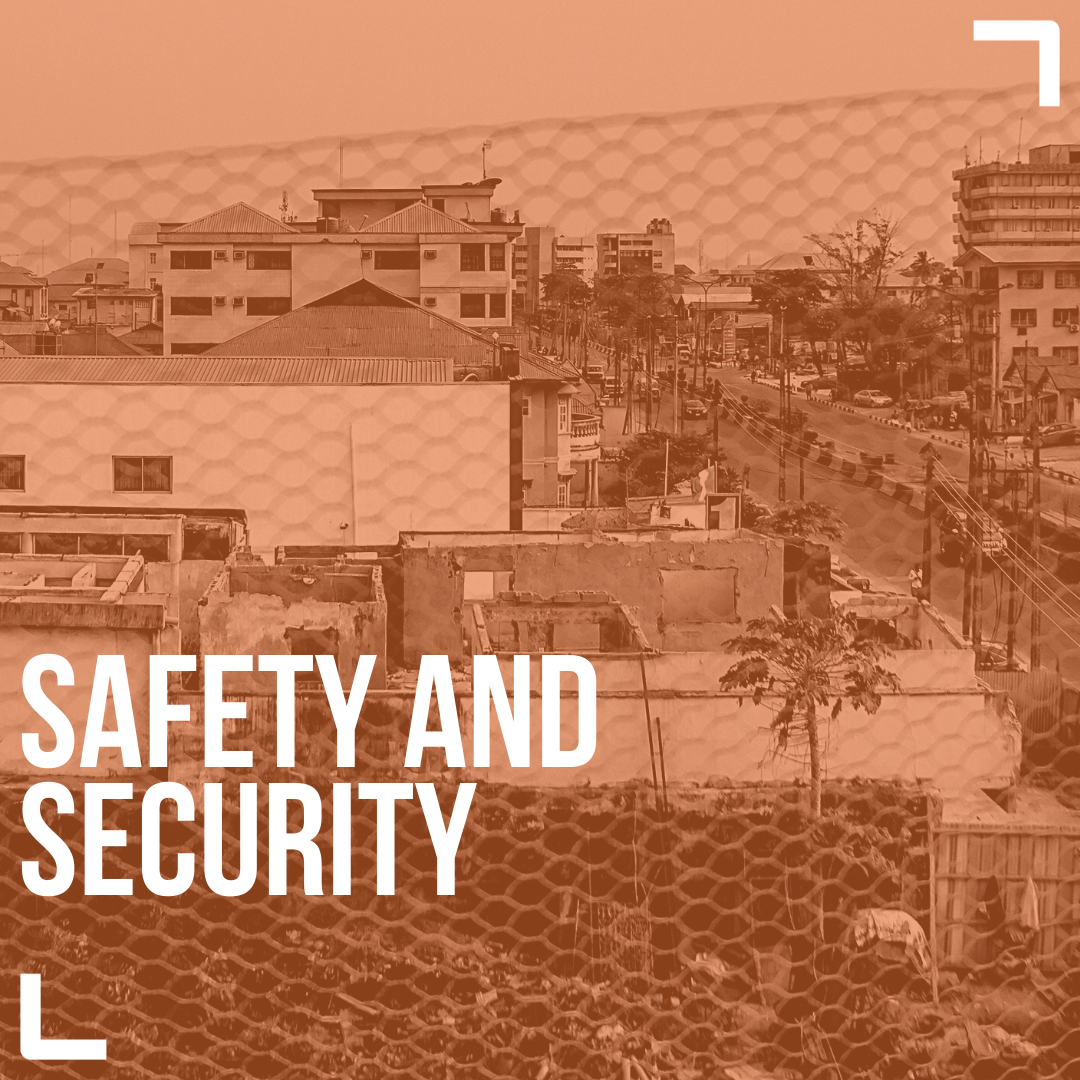Bukavu
Bukavu has more than 1 million residents and is one of the most populated cities in the Democratic Republic of Congo.
Established in 1900 as a military post in Belgian King Leopold’s Congo Free State, Bukavu’s area has not expanded significantly since independence in 1960, but its population has greatly increased since the 1990s. This is mainly due to immigration from rural areas as a result of conflict, business opportunities and spatial planning issues in the surrounding areas of the city, where people lack access to water, electricity and roads.
Poor and insecure housing and infrastructure are pervasive in the city, while mobilising the region’s riches for development purposes remains a major urban challenge.
Bukavu: City Scoping Study
Read now
African Cities Research Consortium
Bukavu: City Scoping Study
By Aymar Bisoka Nyenyezi (Université de Mons), Emery Mushagalusa Mudinga (Institute for Rural Development Studies – Bukavu) and Tom De Herdt (University of Antwerp)
Cross-border economic and insecurity dynamics, a patronage relationship with the capital of Kinshasa and local struggles for both power and inclusive development contextualise governance challenges for the city of Bukavu. On one hand, the political, military and economic elites of the city have wrestled themselves from Kinshasa’s influence and created a (semi-)autonomous space in which they can cultivate ties to east African networks. On the other hand, people are mobilised in civil society networks in attempts to secure livelihoods and tenure security.
General context
Bukavu in the territory of the Bashi Kingdom of Kivu. The city attracted colonial settlers and gradually expanded from three km² to 58.26km² on the eve of independence. Its area has not expanded significantly since independence, but since the beginning of the 1990s the number of inhabitants has increased significantly.[1] In addition to ‘natural’ demographic growth, the recent expansion of Bukavu’s population is mainly due to three factors: (1) immigration from rural areas caused by conflict, and the activity of armed groups, (2) business opportunities, and (3) spatial planning problems in the surrounding areas of the city where people have no access to water, electricity and roads.[2]
According to current estimates, Bukavu has more than one million residents and it is one of the most populated cities in the Democratic Republic of Congo. The data in Table 1 demonstrates that the long period of war did not have a lasting downward demographic impact on the eastern provinces, but did result in a growing urban population. The table also illustrates contrasting estimates of the population. The demographic explosion since the nineties is one of the key drivers of a number of inter-related problems related to housing conditions and tenure insecurity in the city.
Table 1: Population projections based on different data series
| 1984 | 2018 | ||||||
| Population census | Enrolment data | UNOCHA data | 1984 census projection (strong hypothesis) | ||||
| Number | Number | Annual growth rate 2018/1984 | Number | Annual growth rate 2018/1984 | Number | Annual growth rate 2018/1984 | |
| Goma | 115,659 | 958,302 | 6.42% | 868,135 | 6.11% | 411,045 | 3.80% |
| North Kivu | 2,434,275 | 9,907,159 | 4.21% | 9,498,971 | 4.09% | 8,240,221 | 3.65% |
| Bukavu | 167,950 | 1,140,999 | 5.80% | 890,346 | 5.03% | 351,974 | 2.20% |
| South Kivu | 2,107,988 | 7,161,629 | 3.66% | 6,633,514 | 3.43% | 9,866,811 | 4.64% |
| DRC | 30,729,443 | 97,100,954 | 3.44% | 96,149,393 | 3.41% | 92,543,195 | 3.30% |
Source: Muhoza Kanze et.al. (forthcoming)
Political context
Situated on the border with Rwanda, Bukavu occupies a geostrategic position in the eyes of Kinshasa. Most of the armed conflicts in the DRC over the last 25 years have emerged and developed in or around the city. The province of South Kivu is also very important because of its significant reserves of natural resources (such as gold, cassiterite, coltan), which are often illegally transported to East Africa and from there to Europe, the Middle East or Asia. For these reasons, the national government seated in Kinshasa takes an interest in the management of the province and Bukavu and it remains a strategic location for the country’s armed forces.
Kinshasa’s involvement in municipal affairs is exercised through multiple tiers of government and administrative layers of the state, and also through political parties, political movements and personal connections. Although the governor of South-Kivu has autonomous powers to oversee administrative affairs in the province, the role is never elected by provincial parliaments without the consent or even the instruction of the president of the Republic. Citizens complain about Kinshasa’s micro-management of urban affairs, such as the nomination of teaching assistants at the public university.
Officials in Bukavu have a complex relationship with the national government in Kinshasa. By adhering to the ruling majority, demonstrating allegiance to the head of state, and following his partisan discourse and policy, they are able to realise a level of autonomy. Furthermore, political candidates from the east tend to do well in national electoral politics. Thus, local political elites are able to secure a certain margin of manoeuvre in critical issues like mineral trafficking, business with eastern African countries, and relations with armed groups. Local politicians position themselves strategically vis-a-vis Kinshasa in order to reassure their electorate in Bukavu, and overtime this has turned Bukavu into a semi-autonomous territory.[3] Several observers contend that one of the most pressing challenges facing local authorities is to identify opportunities for urban transformation in the context of this partial autonomy.
Urban challenges
Among the many challenges facing Bukavu, two priority areas directly connected to urban governance should be highlighted.
First is the problem of poor and insecure housing and infrastructure. As noted above, demographic growth of Bukavu was not accompanied by the enlargement of the city. One of the consequences of the increased population density has been the encroachment on most of the city’s green and vacant spaces.
The initial city plan implemented during the colonial period separated “residential areas” of European settlers from the cités reserved for “Blacks”. The colonial structure of the city changed completely in the decades following independence in 1960. Urban transformation gained momentum during the period when Bukavu (and eastern DRC more broadly) was governed by the Alliance of Democratic Forces for the Liberation of Congo-Zaire and then the Rally for Congolese Democracy rebellion after the fall of the Mobutist regime (1997). However, this period was characterised by a vicious cycle of demographic pressure, property speculation, poor cadastral management and land insecurity.[4]
Urban development is still shaped by these pressures which have led to a range of other problems related to urban infrastructure. For example, construction on unsuitable land has resulted in landslides and erosion, as well as increased pressure on public space. Complex social relationships around property security are an important driver of the dynamics of urban inequality, accumulation and poverty. Even cemeteries are subject to speculation.
Ruzizi Cemetery and practices of land grabbing in the cityThe scramble for plots in the Ruzizi cemetery – as well as the grabbing of plots and buildings owned by the state – is indicative of a wider problem of urban governance. First, the city of Bukavu was built for a population of 300,000 inhabitants, but this quadrupled without the implementation of an effective planning strategy. The provincial authorities never created the material conditions (such as security, roads, infrastructure, water and electricity.) that would allow people to build homes and live outside the city of Bukavu. People instead prefer to stay on plots of land in the city that range in size from five to seven square metres (traded between US$15,000 and US$40,000 depending on the location) or to build on high-risk sites. Second, this situation reveals the influence of corruption and clientelist practices in urban governance. In January 2021, the mayor of the city was suspended because of his involvement in the grabbing of state plots and the sale of plots in the Ruzizi cemetery. Land speculation makes Bukavu the most expensive city in the country in terms of plot prices and rent costs. |
Second, mobilising the region’s riches for development purposes is a major challenge. South Kivu province is the province with the highest percentage of people below the poverty-line in the DRC (87% compared to the national average of 66%) and the percentage for the city of Bukavu (89.7%) is even higher than the interior of the province (84.2%).[5] Many households experience food insecurity and malnutrition is common. Once labelled the ‘granary of the surrounding provinces’ due to its agricultural production, South Kivu province is no longer able to ensure food self-sufficiency for its own population[6] because of insecurity, land insecurity and deficient road infrastructure connecting Bukavu with its hinterland.[7]
Political factors shaping whether urban challenges are addressed
Bukavu’s challenges have been widely recognised but have not been met with public action. Since the end of the Second Congo War and the subsequent elections in 2006, various national and provincial development programs have been introduced but they have been largely ineffective.
After the 2006 elections, President Kabila’s primary objective was to remain in power rather than rebuild the country.[8] The current president, Félix Tshisekedi, has prioritised addressing endemic insecurity and poverty, but he lacks a parliamentary majority and the Covid-19 pandemic has not allowed him to focus on his electoral promises.
All of this has taken place in the context of simmering conflict and insecurity in the region. Ending conflict requires both international, national and local level commitment to peace. Armed conflicts in the region have dramatically affected the city of Bukavu. Conflict isolated the city from its hinterland, facilitated mechanisms of resource capture and control of institutions by elites in both Kinshasa and South Kivu province that led to ethnic tensions. Finally, conflict has impeded the government’s ability to collect taxes. Tax revenue that is collected tends to augment the salaries of public servants rather than public accounts.[9] Natural resources represent another potential source of revenue, yet much of this disappears in illicit transborder trade (which, in turn, fuels conflict).
The state is the single largest employer and point of access to other sources of wealth. This has led to intense competition for public-sector jobs, and the de facto introduction of ethnic quota in public administration has led to a fragmentation of the “public” service and to an unending stream of claims about the exclusion of specific groups. This leaves ultimately little margin for the planning and implementation of policies.
It is in this context that ordinary city dwellers must secure their livelihoods. Apart from individual survival strategies, people often mobilise in the form of what can be labelled as a civil society organisation to secure contacts in politics and in the city administration. Civil society in Bukavu has a long history of political protest which has often produced positive changes in the management of the city.[10] A part of civil society is also politicised. Political incumbents also sometimes succeed in neutralising civil society or in buying their silence by bribing its leaders with money, positions in institutions, and other privileges.
Addressing Bukavu’s challenges
In comparison to cities in the region, Bukavu is unique for several reasons. The city has been marked by a long war and the activities of armed groups active in the province since 1996. It is a hub of what has been considered a war economy, even if illicit cross-border trade networks predate the war. [11] At the same time, from a geostrategic point of view, Kinshasa has always wanted to retain influence over the management of the province by appointing and dismissing the city authorities as it sees fit.
But over time, authorities and economic entrepreneurs in Bukavu have built alliances with both armed groups and the authorities in Kigali and Bujumbura, often without Kinshasa’s knowledge. In several areas, they have carved out a certain autonomy in the management of resources, the informal economy, migratory flows and even prisoner exchanges. This context determines relations among different types of actors and institutions (including governors, influential members of parliament, businesses, traditional chiefs, influential economic operators and armed groups). At the same time, the dynamics of accumulation translate easily into tenure insecurity for the lower-income residents in the city in this context of acute scarcity of land and population pressure.
Bukavu is also known to be subversive due to the assertiveness of its population and the leading role of civil society. Whether with the settlers, foreign invaders or rebellions, but also in relation to its own rulers, the mobilisation of civil society in Bukavu is important for understanding how, through a combination of institutional and informal mechanisms, city dwellers manage to create spaces of autonomy for themselves.[12] Therefore, the challenge is to imagine ways in which these spaces can play a transformative role. This type of work calls for a study of the city of Bukavu which goes beyond the analysis of formal structures, and for ethnographic and political studies which allow us to understand urban governance in context and to explore realistic scenarios for inclusive urban transformation.
References
Ansoms, A. and Marivoet, W. (2010). “Socio-economic profile of South Kivu and future avenues of research”. In S. Marysse, F. Reyntjens and S. Vandeginste (eds.) (2010), L’Afrique des Grands Lacs: Annuaire 2009-2010. Paris : L’Harmattan, pp. 259-272. Open access (accessed 11 May 2021).
Bagalwa Mapatano, J. (2002). “La société civile face à la guerre au Kivu / RDC, 1996-2002”. Geneva: IUED
Balyahamwabo Tulinabo, Ch. (2006). “Road transport and development in South Kivu: Analysis of links between poverty and transport infrastructure. Review”. Annales de l’Université Evangélique en Afrique (UEA), 1(1).
De Herdt, T. and Titeca, K. (eds.) (2019). Negotiating Public Services in the Congo: State, Society and Governance. London: Zed Books.
DRC (2005). Document de stratégie de réduction de la pauvreté, Province du Sud-Kivu (Draft 02) Kinshasa.
Englebert, P. and Ngoy Kimpulwa, B. (eds.) (2021). L’État en morceaux: La politique au Congo au prisme du découpage territorial. Brussels/Paris: Musée Royal d’Afrique Centrale/L’Harmattan.
Lukuli Petemoya, J.-C. (2005). “La pauvreté au Sud-Kivu: Concept et mesure”. Bukavu : Discussion Paper No 1, Laboratoire d’Économie Appliquée au Développement (LEAD), Université Catholique de Bukavu..
MacGaffey, J. (1991). The Real Economy of Zaire: The Contribution of Smuggling and Other Unofficial Activities to National Wealth. Philadelphia, PA: University of Pennsylvania Press.
Marivoet, W., De Herdt, T. and Ulimwengu, J. (2019). Reviewing DRC’s Poverty Estimates, 2005-2012: Unprecedented GDP Growth without Trickle Down. London: SLRC Report 73.
Mufungizi, A. and Deville, P. (2008). “Croissance démographique et équilibre environnemental: L’Enjeu de la sécurité alimentaire au Sud-Kivu”. Revue des questions scientifiques, 179(1) : 133-152.
Muhanya Nzigire, L., Koko Mukuru, Y., Kafirongo Maneno, J., Apendeza Muhoza Kanze, B. De Herdt, T. Marivoet, W. (forthcoming). Population estimates for the DRC: narrowing the margins of imprecision: narrowing the margins of imprecision.
Murhula Balasha, B, Kitsali Katungo, J.-H. and Mushagalusa Balasha, A.(2020). “Poverty and the informal sector in Bukavu: Profile of agricultural commodity retailers in the pandemic era COVID-19. Journal of Economics, Finance and Accounting Studies (JEFAS), 2(2) : 1-10.
Bisimwa Ngabo, A. et al (2020). “Climate change and agricultural production in South Kivu, Democratic Republic of Congo”. Congo Sciences CEDESURK and ACASTI Online Journal.
Nyenyezi Bisoka, A. and Ansoms, A. (2015). “Accaparement des terres dans la ville de Bukavu (RDC) : Déconstruire le dogme de la sécurisation foncière par l’enregistrement”. In S. Marysee and J. Omasombo (eds.), Conjonctures Congolaises 2014. Politiques, territoires et ressources naturelles: Changements et continuités. Paris: L’Harmattan.
Nyenyezi Bisoka, A. and Ansoms, A. (2016). “Droit et conflits fonciers à Bukavu: Vers une anthropologie de mécanismes juridictionnels de résolution des conflits”. In S. Marysse, and J. Omasombo (eds.), Conjonctures Congolaises 2015. Entre incertitudes politiques et transformation économique. Paris: L’Harmattan, pp. 255-276.
Nyenyezi Bisoka, A. (2019). “Chronique politique de la RDC : 2018”. In: F. Reyntjens (ed.), Chronique politique de l’Afrique des Grands Lacs 2018. Antwerp: University Press Antwerp, pp.41-62.
Peyton, D. (2018). “Wartime speculation: Property markets and institutional change in eastern Congo’s urban centers”. Journal of Eastern African Studies, 12(2),: 211-231.
Minani Bihuzo, R. S. J (2012). 1990-2007 : 17 ans de transition politique en RDC et perspectives démocratiques en RDC. Kinshasa : Editions. RODHECIC/CEPAS.
Van Overbeek, F. (2020). Shaping Claims to Urban Land: An Ethnographic Guide to Governmentality in Bukavu’s Hybrid Space. PhD thesis, Wageningen University.
Van Overbeek, F. and Tamás, P. A. (2020). “Claim-making through subjectivation: A governmentality analysis of associational performance to claim land in the hybridity of peri-urban Bukavu”. Geoforum 109: 152-161.
Vervisch, T., Mudinga, E. and Muzalia, G. (2020). “MONUSCO’s mandate and the climate security nexus”. GIC policy brief. Gent: Governance in Conflict Network, Ghent University.
[1] van Overbeek (2020).
[2] Nyenyezi Bisoka and Ansoms (2015).
[3] Nyenyezi Bisoka and Ansoms (2016).
[4] Nyenyezi Bisoka and Ansoms (2015); Peyton (2018); van Overbeek (2020).
[5] Figures for 2012, based on 123-survey, see Marivoet, De Herdt and Ulimwengu (2019).
[6] DRC (2005).
[7] Mufungizi and Deville (2008); Ansoms and Marivoet (2010).
[8] Nyenyezi Bisoka (2019).
[9] De Herdt and Titeca (2019).
[10] Minani (2012); Bagalwa Mapatano (2002).
[11] MacGaffey (1991).
[12] van Overbeek and Tamás (2020).
Aymar Nyenyezi Bisoka, assistant professor at the Université de Mons, talks about the infrastructure, housing and governance challenges in Bukavu and why understanding power dynamics in the city is key to helping vulnerable populations.
Header photo credit: MONUSCO / Abel Kavanagh (CC BY-SA 2.0)
LATEST NEWS from ACRC
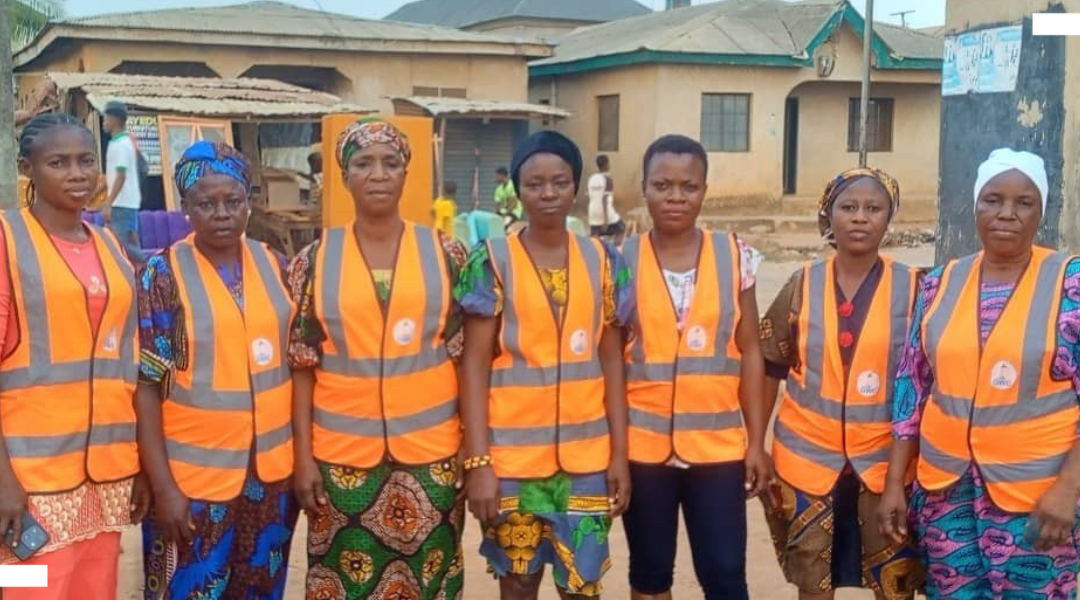
Transforming informal settlements in Lagos through community-driven WASH innovation: The Okerube project
Jul 10, 2025
The “Informal Settlements as Spaces of Transformative Agency” project focuses on the Okerube community in Lagos to challenge dominant narratives and demonstrate how bottom-up, community-led governance models can deliver sustainable and inclusive water, sanitation and hygiene (WASH) solutions in informal urban settlements.

Creating the conditions for change in Mathare informal settlement, Nairobi
Jul 7, 2025
SDI Kenya, through ACRC, is aiming to co-develop solutions with Mathare community members, by devising a holistic waste management system in the area.

How does action research build community and state capabilities?
Jul 3, 2025
This is the fourth in a series of blog posts focusing on how urban reform happens, and where ACRC fits into change processes. This post takes a closer look at how ACRC is helping build community capabilities to address urban challenges.

